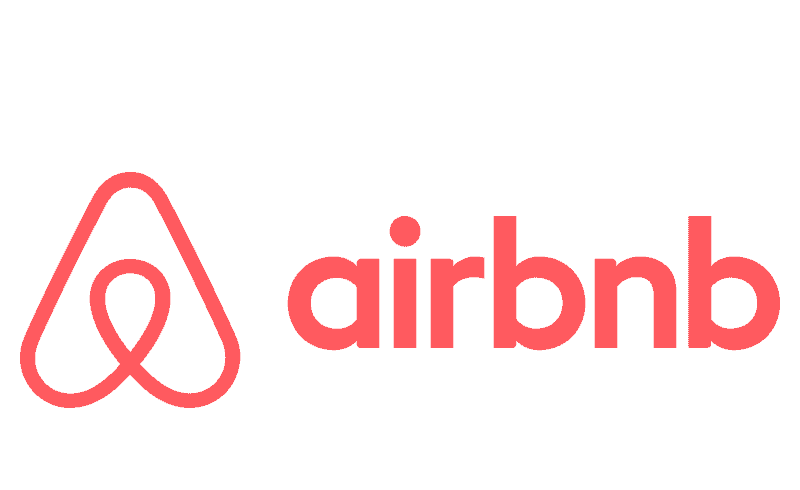Heroku provides a hassle-free solution for enterprises in infrastructure and hardware management. It enables enterprises and organizations to shift their focus toward application logic and quality, with minimal time spent on repetitive tasks. A multitude of third-party tools is ready for integration with your web applications on Heroku, with everything necessary to effectively support your web applications.
What is Heroku?
Heroku is a cloud-based, platform as a service (PaaS) that provides a solution for enterprises and organizations to build, deploy, manage, and scale web applications. With over 200,000 applications deployed across the web and over 2 million developers using the platform, Heroku has firmly cemented itself as a reliable and trusted solution for organizations at any scale.
Heroku allows enterprises to build applications in one of several programming languages and deploy them on the web using simplified commands and minimal configuration. The platform provides features such as automatic scaling, rolling deployments, and a vast library of add-ons for integrating with other services such as PostgreSQL, MongoDB, MemCachier, Cloudflare, and Fastly to name a few.
Combined with its user-friendly interface, support for multiple programming languages, and an array of features, Heroku is a solid choice for enterprises and organizations looking to move their applications to the cloud, focusing on developing applications without having to worry about the technical details of hosting and infrastructure.
Leveraging the key features of Heroku
Heroku provides an array of versatile features and tools for developers and organizations to build, host, manage, and scale their applications and services on the cloud, simplifying the development process, and providing seamless integration with flexible and powerful add-ons. Some of Heroku’s most notable features include:
Heroku Dynos
Dynos, lightweight Linux containers, are the basic building block of any applications running on Heroku. Each dyno can be scaled up or down based on the resource demands of the application. This kind of containerization model helps enterprises move away from all of the complicated hardware management.
Procfile
Procfile is a simple but crucial text file that defines the commands executed by applications during startup. The files enable various process types that form applications, such as web servers, worker processes, singleton processes like clocks, and tasks for executing before a new release is deployed.
Heroku CLI
The Heroku CLI, short for Heroku Command Line Interface, is a command-line tool that interacts with the Heroku platform directly from the terminal window. The ability to streamline workflows, manage web applications and add-ons, scale resources, and view various logs with Heroku CLI makes web development far simpler.
“Procfile’s are crucial for deploying Heroku applications as they define the process types that comprise the commands that Heroku should use to start each process.”
Git integration
Heroku supports both GitHub and Bitbucket repositories, with pipelines for continuous integration and deployment. Create and merge changes of web applications and feature branches and merge changes into a full-fledged production branch when ready. Supports for Travis CI allowing for continuous integration and pending statuses check up before deployment.
Heroku buildpacks
Heroku Buildpacks are open-source scripts for compiling applications that support multiple languages. Third-party custom buildpack can be created with a vast collection of officially supported languages. Buildpacks provide flexibility, enabling the adjustment of web applications to specific needs or requirements.
Heroku add-ons
Heroku’s platform offers a variety of fully managed cloud services that simplify application development, operation, and management. Many add-ons are provided by partners, with some having free plans for developers and enterprises to explore on the Heroku Elements Marketplace.
“Buildpacks provide flexibility, enabling the adjustment of web applications to specific needs or requirements.”
Heroku dashboard
The Heroku Dashboard is a powerful and efficient web-based user interface designed to enhance developer productivity on the Heroku platform. It includes several features such as creating, renaming, and deleting apps, viewing app metrics, configuring add-ons, managing Heroku Teams, creating pipelines, and configuring deployment integrations. The Dashboard also includes an extended menu that allows users to access common tasks such as viewing logs and opening a web console.
Heroku flow
Heroku DevOps tools, Heroku Flow, enables organizations to adopt a continuous integration and continuous deployment (CI/CD) approach, allowing for faster and more efficient application delivery. Organizations are able to manage different environments for development, staging, and production, ensuring that changes to the application are properly tested before reaching the end users.
Heroku’s technical infrastructure
Heroku simplifies web application development by acting as an intermediary between developers and Amazon Web Services (AWS). Enterprises configure their applications by setting environment variables, which store configuration details. Once configured, applications are deployed to Heroku’s platform, which automatically compiles and runs them.
Using a containerization approach, Heroku employed lightweight and isolated environments known as “dynos” to encapsulate and isolate web applications. With dynos, businesses can effortlessly adapt to traffic fluctuations and evolving business requirements. This isolation allows businesses to focus on their core objectives without worrying about conflicts or dependencies between different application components.
Configuring applications is straightforward, requiring only the setup of environment variables. These variables store configuration information and can be easily set through the Heroku CLI or the Dashboard. Once the codebase is connected, buildpacks are established, and environment variables are configured, enterprises can deploy their applications to Heroku’s platform. Heroku automatically compiles and runs the application, enabling scalability by adjusting resources such as adding more containers (dynos) or changing their size.
Why top enterprises choose Heroku
Heroku is one of the go-to cloud platforms with features that enterprises and businesses find useful. With a broad range of features for managing web applications on an enterprise scale, Heroku offers cost-effective solutions to streamline application development and deployment.
Core benefits associated with Heroku
Automatic scaling
By dynamically adjusting the number of Dynos assigned to a web application based on incoming traffic, Heroku ensures that the application can continue to operate smoothly regardless of fluctuations in traffic demands to the web application.
Language support
Heroku provides support for a wide range of programming languages, including Ruby, Java, Python, PHP, and Node.js, among others. This makes it easier for organizations to deploy applications written in the language they are most comfortable with.
Logging and monitoring
Heroku’s monitoring and logging features are crucial to ensuring the seamless operation of web applications. Heroku offers a comprehensive solution for preserving the reliability and effectiveness of web applications with real-time logging, health monitoring, alerts and notifications, and thorough metrics and analytics.
“Heroku ensures that application continue to operate smoothly regardless of fluctuations in traffic demands.”
Metrics and analytics
The platform provides different types of metrics and analytics tools for administrators to understand their application’s performance, such as response times and resource utilization. This information enables administrators to make informed decisions on how to optimize their applications and improve performance.
Health monitoring
The built-in health monitoring dashboard enables the display of various statuses of web applications, including the ability to set up alerts and notifications, ensuring that administrators are informed of any critical issues or downtime.
Security
Through encryption and backup alternatives, Heroku ensures that data is not lost in the event of an emergency. Single Sign-On (SSO) and Multi-Factor Authentication (MFA), as well as logging and monitoring capabilities, enable the detection of suspicious activities.
Easy deployment
Integration with GitHub and Git Deployment allows for fast and easy deployment. Combined with the platform’s REST API enables enterprises to automate the deployment process of web applications.
Who uses Heroku?
Heroku provides organizations and enterprises at any scale with a reliable, scalable, and efficient solution for application and cloud hosting. From eCommerce and software development to hospitality and healthcare, Heroku is a go-to platform for businesses looking to streamline their operations and deliver top-notch experiences to their customers.

Shopify is a popular e-commerce platform for small and medium-sized businesses. Heroku makes it easier for Shopify to manage its infrastructure because it takes care of things like scaling and server failures. This way, Shopify’s team can focus on making the website and customer experience better, without worrying about the technical bits and pieces. Heroku makes it all smooth and reliable for Shopify.

Heroku makes it possible for GitHub to run its website and handle technical operations. GitHub is able to manage its infrastructure with ease, as Heroku takes care of important tasks such as scaling and ensuring website uptime. It offers a smooth and reliable experience for its users, allowing its team to concentrate on improving the platform for software developers.

Heroku simplifies the management of Airbnb’s platform and APIs, making it possible for them to operate smoothly and consistently. Combined with Heroku’s automatic scaling features, Airbnb can effortlessly adjust and scale its infrastructure to accommodate any fluctuations in demand. This frees up Airbnb’s team to concentrate on enhancing the user experience, rather than dealing with technicalities.

Heroku streamlines the hosting process for Twitch’s platform, and APIs, enabling them to concentrate on delivering an outstanding experience for their users. Heroku takes care of all the technical complexity side so that the development team can focus on delivering the best possible experience for its users. With Heroku, Twitch can quickly adjust its setup as needed, and can always count on a smooth and reliable platform.

